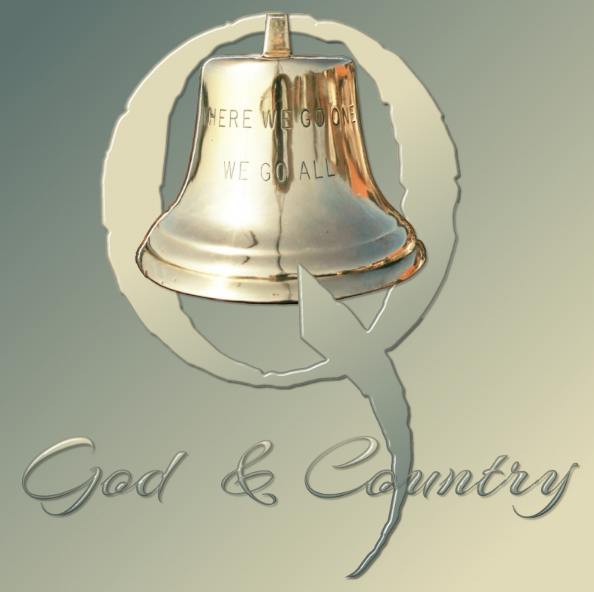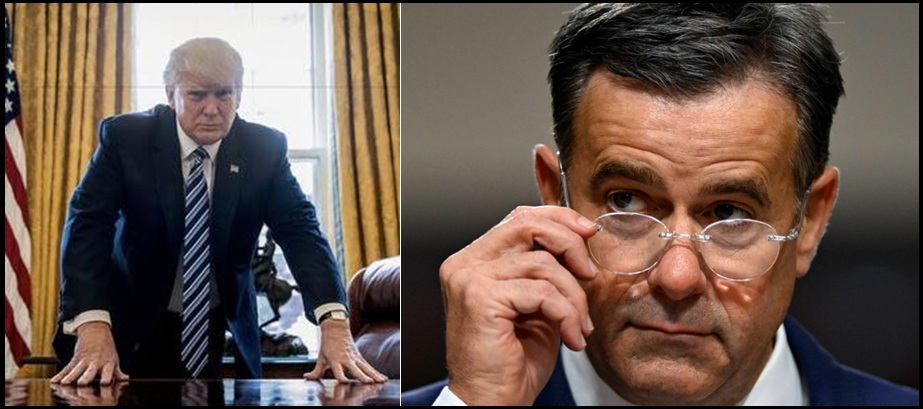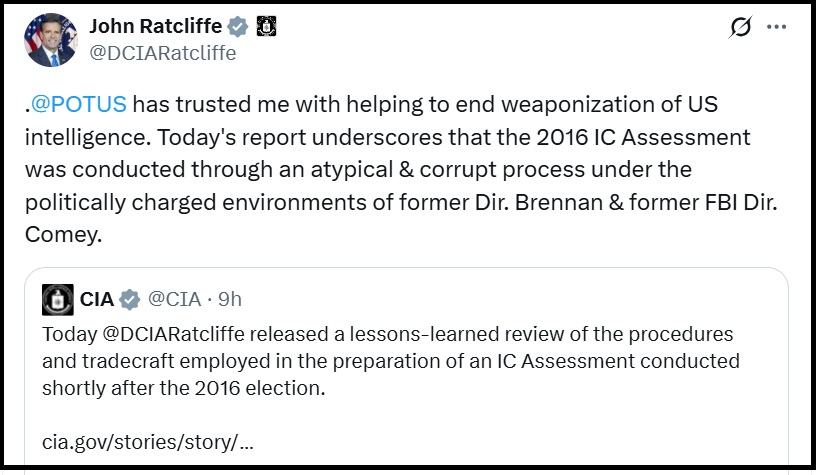The first six months of the Trump administration have not been kind to the experts and the degree-holding classes.
Almost daily during the tariff hysterias of March, we were told by university economists and most of the PhDs employed in investment and finance that the U.S. was headed toward a downward, if not recessionary, spiral.
Most economists lectured that trade deficits did not really matter. Or they insisted that the cures to reduce them were worse than the $1.1 trillion deficit itself.
They reminded us that free, rather than fair, trade alone ensured prosperity.
So, the result of Trump's foolhardy tariff talk would be an impending recession. America would soon suffer rising joblessness, inflation--or rather a return to stagflation--and likely little, if any, increase in tariff revenue as trade volume declined.
Instead, recent data show increases in tariff revenue. Personal real income and savings were up. Job creation exceeded prognoses. There was no surge in inflation. The supposedly "crashed" stock market reached historic highs.
Common-sense Americans might not have been surprised. The prior stock market frenzy was predicated on what was, in theory, supposed to have happened rather than what was likely to occur. After all, if tariffs were so toxic and surpluses irrelevant, why did our affluent European and Asian trading rivals insist on both surpluses and protective tariffs?
Most Americans recalled that the mere threat of tariffs and Trump's jawboning had led to several trillion dollars in promised foreign investment and at least some plans to relocate manufacturing and assembly back to the United States. Would that change in direction not lead to business optimism and eventually more jobs? Would countries purposely running up huge surpluses through asymmetrical trade practices not have far more to lose in negotiations than those suffering gargantuan deficits?
Were Trump's art-of-the-deal threats of prohibitive tariffs not mere starting points in negotiations that would eventually lead to likely agreements more favorable to the U.S. than in the past and moderate rather than punitive tariffs?
Would not the value of the huge American consumer market mean that our trade partners, who were racking up substantial surpluses, would agree they could afford modest tariffs and trim their substantial profit margins rather than suicidally price themselves out of a lucrative market entirely?
Economists and bureaucrats were equally wrong on the border.
We were told for four years that only "comprehensive immigration reform" would stop illegal immigration. In fact, most Americans differed. They knew firsthand that we had more than enough immigration laws, but had elected as President Joe Biden, who deliberately destroyed borders and had no intention of enforcing existing laws.
When Trump promised that he would ensure that, instead of 10,000 foreign nationals entering illegally each day, within a month, no one would, our experts scoffed. But if the border patrol went from ignoring or even aiding illegal immigrants to stopping them right at the border, why would such a prediction be wrong?
Those favoring a reduction in illegal immigration and deportations also argued that crime would fall, and citizen job opportunities would increase, given an estimated 500,000 aliens with criminal records had entered illegally during the Biden administration, while millions of other illegal aliens were working off the books, for cash, and often at reduced wages.
Indeed, once the border was closed tightly, hundreds of thousands were returned to their country, and employers began turning to U.S. citizens. Job opportunities did increase. Crime did go down. Legal-only immigration regained its preferred status over illegal entry.
Trump talked of trying voluntary deportation--again to wide ridicule from immigration "experts." But why would not a million illegal aliens wish to return home "voluntarily"-- if they were given free flights, a $1,000 bonus, and, most importantly, a chance later to reapply for legal entry once they arrived home?
Many of our national security experts warned that taking out Iran's nuclear sites was a fool's errand. It would supposedly unleash a Middle East tsunami of instability. It would cause a wave of terrorism. It would send oil prices skyrocketing. It would not work, ensuring Iran would soon reply with nuclear weapons.
In fact, oil prices decreased after the American bombing. A twenty-five-minute entrance into Iranian airspace and bombing led to a ceasefire, not a conflagration.
As for a big power standoff, World War III, and 30,000 dead, common sense asked why China would wish the Strait of Hormuz to close, given that it imports half of all Middle Eastern oil produced?
Why would Russia--bogged down in Ukraine and suffering nearly a million casualties--wish to mix it up in Iran, after ignominiously fleeing Syria and the fall of its Assad clients?
Russia usually thinks of Russia, period. It does not lament when tensions elsewhere are expected to spike oil prices. Why would Russia resupply Iran's destroyed Russian-made anti-aircraft systems, when it was desperate to ward off Ukrainian air attacks on its homeland, and Iran would likely again lose any imported replacements?
As for waves of terror, Hezbollah, Hamas, and the Houthis have suffered enormous losses from Israel. Their leadership has been decapitated; their streams of Iranian money have been mostly truncated. Why would they rush to Iran's side to war with Israel, when Iran did not come to their aid when they were battling and losing to the Israelis?
Has a theater-wide war really ever started when one side entered and left enemy territory in 25 minutes, suffering no casualties and likely killing few of the enemy?
As far as the extent of damage to Iran's nuclear infrastructure, why should we believe our expert pundit class?
Prior to the American and Israeli bombing, many of them warned that Iran was not on the verge of obtaining a nuclear weapon, and therefore, there was little need for any such preemptive action.
Then, post facto, the same experts flipped. Now they claimed, after the bombing that severely damaged most Iranian nuclear sites, that there was an increased threat, given that some enriched uranium (which they had previously discounted) surely had survived and thus marked a new existential danger of an Iranian nuclear bomb.
Was Trump really going to "blow up", "destroy" or "cripple" NATO, as our diplomatic experts insisted, when his first-term jawboning led from six to twenty-three nations meeting their two percent of GDP defense spending promises?
Given two ongoing theater-wide wars, given Trump's past correct predictions about the dangers of the Nord Stream II pipeline, given the vulnerability of an anemic NATO to Russian expansionism, and given that Russian leader Vladimir Putin did not invade during Trump's first term, unlike the three presidencies before and after his own, why wouldn't NATO agree to rearm to five percent, and appreciate Trump's efforts both to bolster the capability of the alliance and the need to end the Ukraine war?
Why were our "scientific" pollsters so wrong in the last three presidential elections, and so at odds with the clearly discernible electoral shifts in the general electorate? Where were crackpot ideas like defund the police, transgender males competing in women's sports, and open borders first born and nurtured?
Answer: the university, and higher education in general.
The list of wrongheaded, groupthink, and degreed expertise could be vastly expanded. We remember the "51 intelligence authorities" who swore the Hunter Biden laptop was "likely" cooked up by the Russians. Our best and brightest economists signed letters insisting that Biden's multitrillion-dollar wasteful spending would not result in inflation spikes. Our global warming professors' past predictions should have ensured that Americans were now boiling, with tidal waves destroying beachfront communities, including Barack Obama's two beachfront multimillion-dollar estates.
Our legal eagles, after learning nothing from the bogus Mueller investigation and adolescent Steele dossier, but with impressive Ivy League degrees, pontificated for years that, by now, Trump would be in jail for life, given 91 "walls are closing in" and "bombshell" indictments.
So why are the degreed classes so wrong and yet so arrogantly never learn anything from their past flawed predictions?
One, our experts usually receive degrees from our supposedly marquee universities. But as we are now learning from long overdue autopsies of institutionalized campus racial bias, neo-racial segregation, 50-percent-plus price-gauging surcharges on federal grants, and rabid antisemitism, higher education in America has become anti-Enlightenment. Universities now wage war against free-thinkers, free speech, free expression, and anything that freely questions the deductive groupthink of the diversity/equity/inclusion commissariat, and global warming orthodoxies.
The degreed expert classes emerge from universities whose faculties are 90-95 percent left-wing and whose administrations are overstaffed and terrified of their radical students. The wonder is not that the experts are incompetent and biased, but that there are a brave few who are not.
Two, Trump drove the degreed class insane to the degree it could no longer, even if it were willing and able (and it was not), offer empirical assessments of his policies. From his crude speech to his orange skin to his Queens accent to his MAGA base to his remarkable counterintuitive successes and to his disdain for the bicoastal elite, our embarrassing experts would rather be dead wrong and anti-Trump than correct in their assessments -- if they in any small way helped Trump.
Three, universities are not just biased, but increasingly mediocre and ever more isolated from working Americans and their commonsense approaches to problem solving. PhD programs in general are not as rigorous as they were even two decades ago. Grading, assessments, and evaluations in professional schools must increasingly weigh non-meritocratic criteria, given their admissions and hiring protocols are not based on disinterested evaluation of past work and expertise.
The vast endowments of elite campuses, the huge profit-making foreign enrollments, and the assured, steady stream of hundreds of billions of dollars in federal aid created a sense of fiscal unreality, moral smugness, unearned superiority, and ultimately, blindness to just how isolated and disliked the professoriate had become.
But the public has caught on that too many Ivy-League presidents were increasingly a mediocre, if not incompetent, bunch. Most university economists could not run a small business. The military academies did not always turn out the best generals and admirals. The most engaging biographers were not professors. And plumbers and electricians were usually more skilled in their trades than most journalist graduates were in their reporting.
Add it all up, and the reputation of our predictors, prognosticators, and experts has been radically devalued to the point of utter worthlessness.
















